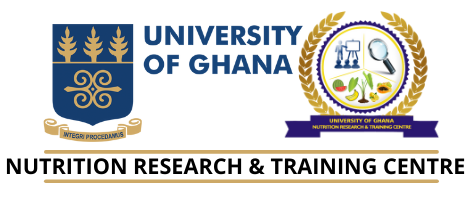Dr Djekic Ivankovic
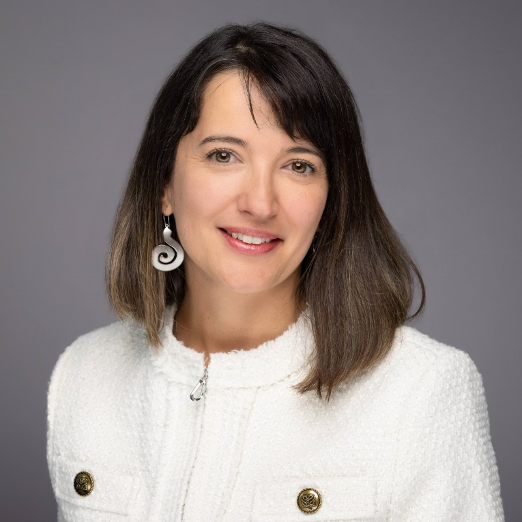
Dr Djekic Ivankovic is a pharmacist who completed her PhD in biochemistry and nutrition at the University of Belgrade in collaboration with McGill University. She applied her expertise in the field of nutrition to global health issues at the Institute of Medical Research in Serbia. Her PhD research on vitamin D in maternal and child health paved the way for a proposed national vitamin D food fortification program in Serbia. As a part of her postdoctoral experience in the context of the COVID-19 pandemic, she joined the COVID-19 Immunity Task Force, provided support to pandemic research in Canada, and shed light on immune responses to SARS-CoV-2. Marija is currently working in the Office of the Director of the School of Population and Global Health (SPGH) at McGill University. In this capacity, she charted the strategic & operational plan for the SPGH and has led the development of key projects related to food security and nutrition in Ghana. Marija’s interests lie in maternal and child health, nutrition, the consequences of malnutrition, and interventions to improve in resource-limited settings, micronutrient deficiencies, stunting and other health outcomes. She is passionate about innovative educational approaches and knowledge mobilisation for health promotion and protection.
Myriam Yasmine Baguignan
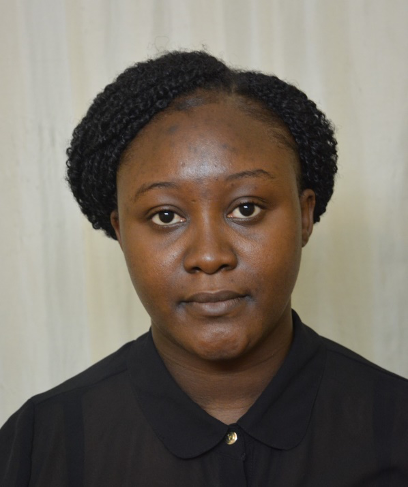
Myriam Yasmine Baguignan is a doctoral student researcher in Energy at the Department of Chemical, Food and Environmental Processes Sciences of the Institut National Polytechnique Félix Houphouët-Boigny. Her area of interest focuses on sustainable development-oriented local initiatives in African countries and the improvement of living conditions of populations through green and renewable energies. She has technical skills in designing, installing, and managing green energy systems. Her research focuses on waste management and bioenergy recovery to enable Africa to develop a more competitive industry. She has worked to bring technical and organisational expertise to industries for energy optimisation to create sustainable transformation processes. She has also worked on developing and vulgarising innovative waste treatment solutions from agro-industrial processing industries to add value and strengthen local economies through the circular economy.
Dr. Ofonime Eyo
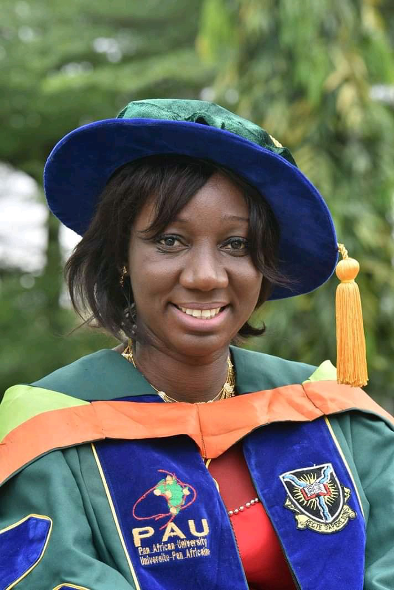
Dr. Ofonime Eyo is a researcher passionate about Climate-Smart Agriculture, Mitigation/ Adaptation studies and Sustainable Development. She obtained a PhD in Environmental Management from the Pan African University (PAULESI) Nigeria, under the African Union Merit Award. She was nominated for the Norman Borlaug fellowship by the Indian Council for Agricultural Research, where she obtained a Master’s degree in Agricultural Economics from the Tamil Nadu Agricultural University Coimbatore, India. In 2018, she was nominated a CLIFF-GRADS Fellow (https://globalresearchalliance.org/n/cliffgrads-awardees-2018/) for a project at the International Maize and Wheat Improvement Center Bangladesh. During this experience, she received hands-on training for a “Participatory Integrated Climate Services for Agriculture (PICSA)” at Khulna. Dr. Ofonime has been involved in conferences and workshops within and outside the country and was actively involved in the Global Climate Smart Agriculture Conference in October 2019 in Bali, Indonesia. She has completed the Climate Governance, Diplomacy and Negotiations Leadership Program sponsored by the African Group of Negotiators Expert Support. She has learned and applied qualitative and quantitative methodologies in her past research and has voluntarily contributed to research at the Nigerian Meteorological Agency.
Marcellin Awouminassi Atakoun
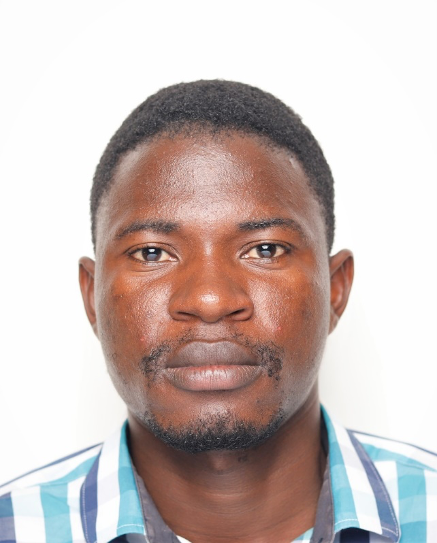
Marcellin Awouminassi Atakoun is currently a PhD candidate in Climate Change and Land Use (CCLU) under the West African Science Service Centre on Climate Change and Adapted Land Use program at the Kwame Nkrumah University of Science and Technology, Kumasi, Ghana. He has an MSc in agronomics sciences, specialising in Soil-Water Environment and Modelling. He has been part of the Hydraulics, and Environmental Modeling Laboratory (HydroModE Lab, Faculty of Agronomy, University of Parakou) researcher’s team in collaboration with the Centre de Coopération Internationale en Recherche Agronomique pour le Développement, Montpellier, France to work on cover crops’ contribution for conservation agriculture in Northern Benin. He is also a research assistant at the Integrated Production Systems Innovation Lab and Sustainable Land Management, University of Parakou, Faculty of Agronomy. He was privileged to work on biochar amendment under maize and cotton culture in Benin.
Oluwadamilola Moyin Oso
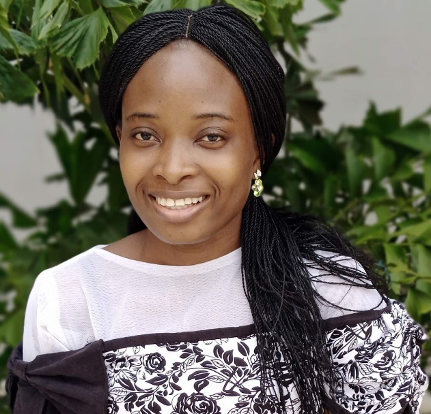
Oluwadamilola Moyin Oso is a PhD student specialising in poultry production (welfare option). She obtained her Master’s degree in livestock science and sustainable environment at the Centre of Excellence in Agricultural Development and Sustainable Environment, Federal University of Agriculture, Abeokuta, Nigeria. She is a career-oriented individual whose focus is to enhance poultry research advancement in Africa by transferring theoretical knowledge into context-based practical solutions. Oluwadamilola is a World Bank Scholar who understands that the success of national food production and security depends on the success of the grassroots producers, therefore, she actively engages the rural farmers. She is an animal welfare scientist and a climate change ambassador who participates in community development and agricultural extension-related services, equipping rural farmers with the right knowledge about how great animal care and well-being will help them achieve maximum productivity even in the face of the changing climate. Oluwadamilola aims to inspire young adolescents and facilitate various programs within and outside the shores of her home country to motivate teens and tweens. She currently seeks to mentor young girls in agriculture and its related vocations.
Phyllis Addo
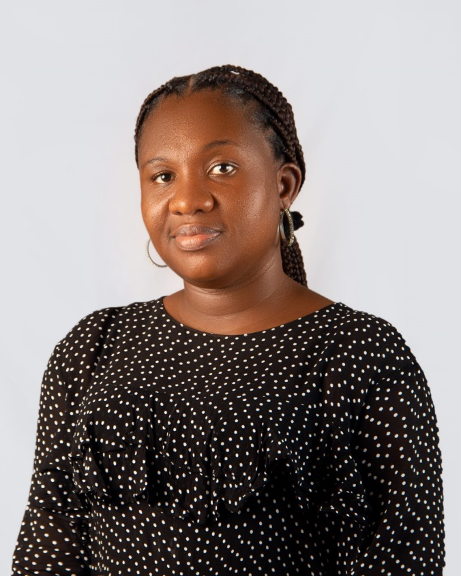
Phyllis Addo is a public health nutrition lecturer at the Department of Family and Community Health at the University of Health and Allied Sciences (UHAS). She holds a PhD in Nutrition and Food Safety (Public Health Option) from the West China School of Public Health at Sichuan University. She graduated from the University of Ghana’s Nutrition and Food Science Department with a Bachelor’s degree in Nutrition and Food Science and a Master of Philosophy in Nutrition. Her research focuses on child and adolescent nutrition, the food environment, and non-communicable diseases (NCDs). She is particularly interested in policy actions and interventions to control unhealthy diets and related NCDs in the context of the broader food systems. Phyllis was a postdoctoral fellow with the Measurement, Evaluation, Accountability, and Leadership Support for Noncommunicable Disease Prevention Project (MEALS4NCDs) before joining UHAS, where she contributed to research on the Ghanaian school food environment. Her doctoral research looked into trans fatty acid exposure in Ghanaian diets, specifically deep-fried foods. She currently serves on the Multisectoral Technical Working Group on Trans-Fatty Acids in Ghana.
Sylvia Nwabuko

Sylvia Nwabuko is an Urban and Regional Planning doctoral student at the Obafemi Awolowo University, Ile-Ife, Nigeria. She is also the Project Director of Daisyl-Emma Enterprises, an agro-based outfit dedicated to producing, processing, and marketing farm produce and training in entrepreneurship. She has a passion for community development and is involved in volunteering and sensitisation of young women to venture into agriculture. She believes supporting and empowering young women to go into agribusiness would significantly reduce hunger. Having worked with small-scale farmers, she understands the challenges of small-scale farming. During her mandatory National Youth Service Programme in 2015, she participated in the “Operation Eradicate Hunger” project, where small-scale female farmers were encouraged to grow food for themselves to reduce hunger. Sylvia has been involved with Catering Craft Practices (Nigeria Institute of Hospitality and Tourism, 2015) and the Agribusiness Capacity Building Program (Davichi Empowerment Initiative, Nigeria National Petroleum Company, Total Upstream Nigeria Limited, 2018), and providing safe and affordable housing. In Kampala, she participated in the Summer School on ‘landscape ecology for improved sustainability and societal equity of social-ecological systems in Sub-Sahara Africa’. Sylvia believes integrating and promoting community development, entrepreneurship, and gender equity will foster sustainable growth and development.
Naim Saturnin
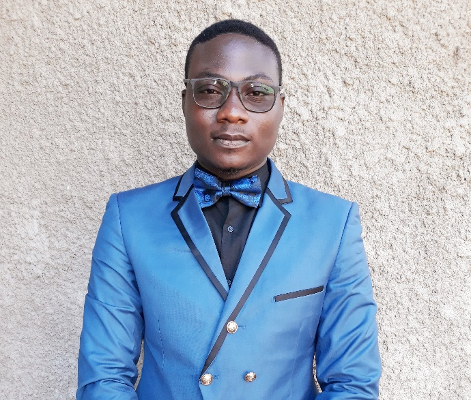
Naim Saturnin holds a BSc in Biochemistry and Food Technology and an MSc in Biochemistry, Nutrition, and Food Safety. He is currently a Ph.D. student in Biochemistry-Nutrition and Food Safety at the University of Dschang in Cameroon. He is a laboratory technician at the Food Quality Control Center of Chad (CECOQDA). His doctoral research work in the field of microbial biotechnology is under the supervision of Professor Kaktcham Pierre Marie. His doctoral project focuses on standardising the fermentation process of a traditional fermented drink, ‘buli-bili,’ with well-characterised strains of lactic acid bacteria and yeasts with functional and technological properties to extend the shelf life and improve the nutritional status of consumers.
Dr. Carmelle Mizéhoun Adissoda
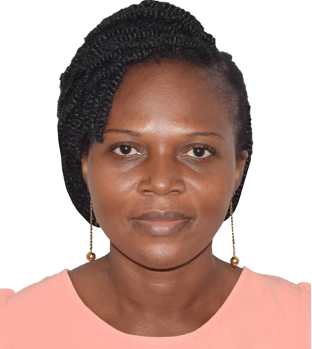
Dr. Carmelle Mizéhoun Adissoda is a Lecturer at the School of Nutrition and Dietetic/ Faculty of Health Sciences at the University of Abomey-Calavi (UAC). After her Pharmacy’diploma at University of Cheikh Anta Diop (UCAD), Senegal, Dr. Mizéhoun A. continued her studies in nutrition (Master’s degree in human nutrition) convinced of its importance as a determinant of the health status of populations and an important factor of development. She also holds a PhD in Public Health/Nutrition and a university diploma in Clinical Research from the University of Limoges-France. Her work focuses on levels of intake of micronutrients (Iodine, sodium, potassium, vitamin D) and their relationship with the nutritional status of populations; the development and validation of tools for assessing food consumption and nutritional status in the black population; food and nutritional risk factors for non-communicable diseases (glycemic index of local foods, obesity, and determinants). As a QES scholar, Carmelle will collaborate with World Vision, Ghana as her Research Placement Partner. She will contribute to a project that underlines the strategies which could address inequity in young child undernutrition in Ghana.
Patience Atitsogbey
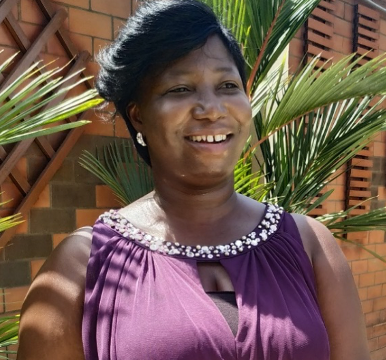
Patience Atitsogbey is a PhD Candidate at the Department of Nutrition and Food Science (NFS), University of Ghana (UG), Legon, under the supervision of Prof. Matilda Steiner-Asiedu and her doctoral supervisory committee members Prof. Agnes Budu (NFS, University of Ghana), Dr Emmanuel Kyereh (CSIR- Food Research Institute, Ghana) and Dr. George A. Annor (University of Minnesota, USA). Her doctoral research aims to explore and measure the effect of nutrition education on consumer behaviour towards using green leafy vegetables and legumes among households in the Accra Metropolitan Area and its linkage to iron and haemoglobin levels. The results will aid in nutrition policy planning and programming for poor communities in the Accra Metropolitan Area and Ghana. Patience has a Bachelor of Science degree in Community Nutrition from the University for Development Studies, Tamale and an MPhil in Nutrition from the University of Ghana, Legon. She also holds a certificate in Food Systems Transitions from the University of Stellenbosch, Institute of Sustainability, South Africa, and a food safety and nutrition certificate from the University of Leeds, UK. She is a Fellow of the African Climate Change Adaptation Initiative (ACCAI) and a UG- Nestle Scholar. Patience has gained her experience over the years by working and researching in poor communities in Ghana on nutrition, food security and climate change, food safety, and health. She aims to improve food and nutrition security and the overall health of households, specifically targeting men, women, adolescents’ girls, and children. As a QES Scholar, she aims to improve her research skills in quantitative and qualitative data analysis, enhance her leadership capacity, and acquire knowledge and skills to improve households’ livelihood in poor Ghanaian communities, which will be extremely useful for her research and future work. Patience looks forward to using this opportunity to network and collaborate with other researchers working in nutrition and health both locally and internationally. As a QEScholar, Patience will be collaborating with World Vision Ghana as her Research Placement Partner to develop a policy brief on strategies needed to address inequity in young child undernutrition in Ghana.
